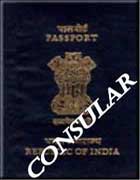The committee on Indian diaspora under the chairmanship of Mr L.M. Singhvi backed demands for dual citizenship and advised the Government of India accordingly. The issue had also figured prominently at the first Pravasi Bharatiya Divas in January, 2003. The Indian Parliament has passed the Bill granting the possibility of dual citizenship to individuals of Indian origin who have been living outside the country since January 26, 1950. India's Prime Minister Dr. Manmohan Singh announced this at the inauguration of the 3rd Pravasi Bharatiya Divas in Mumbai on January 7, 2005.
Despite all the news coverage and excitement over Dual nationality, Overseas Indian Citizenship is not “Dual Nationality” or “Dual Passport”. The Constitution of India does NOT allow dual citizenship, i.e., holding Indian citizenship and citizenship of a foreign country simultaneously. Government of India decided to grant Overseas Citizenship of India (OCI), which most people and the media mistakenly refer as 'dual citizenship'. Persons of Indian Origin (PIOs) of certain category who migrated from India and acquired citizenship of a foreign country other than Pakistan and Bangladesh, are eligible for grant of OCI as long as their home countries allow dual citizenship in some form or the other under their local laws.
Benefits and Privileges
If you get Overseas Indian Citizenship, it is NOT same as being regular Indian citizen. For example:
- You do not get Indian passport;
- No voting rights;
- Can not be candidate for Lok Sabha/Rajya Sabha/Legislative Assembly/Council;
- Can not hold constitutional posts such as President, Vice President, Judge of Supreme Court/High Court etc.;
- Cannot normally hold employment in the Government;
- Cannot acquire agricultural or plantation properties.
- Multiple entry, multi-purpose life long visa to visit India;
- Exemption from reporting to Police authorities for any length of stay in India;
- Parity with NRIs in financial, economic and educational fields except in the acquisition of agricultural or plantation properties;
- Any further benefits to OCIs will be notified by the Ministry of Overseas Indian Affairs (MOIA) under section 7B(1) of the Citizenship Act, 1955.
OCI scheme is being operational from Dec 2, 2005. It has been decided that formal launching of scheme will be done by Prime Minister at Pravasi Bharatiya Divas on Jan 7, 2006 at Hyderabad by symbolically handing over the first OCI certificate to a person of Indian origin.
PIO card versus Overseas Indian Citizenship:
Compared to PIO card, OCI offers following benefits:
- OCI is entitled to life long visa free travel to India whereas for PIO cardholder, it is for 15 years.
- PIO cardholder is required to register with local Police authority for stay exceeding 180 days in India on any single visit whereas OCI is exempted from registration with Police authority for any length of stay in India.
For more details please get in touch with the Embassy of India, The Hague
or
The web site of Ministry of Home Affairs moia.gov.in





